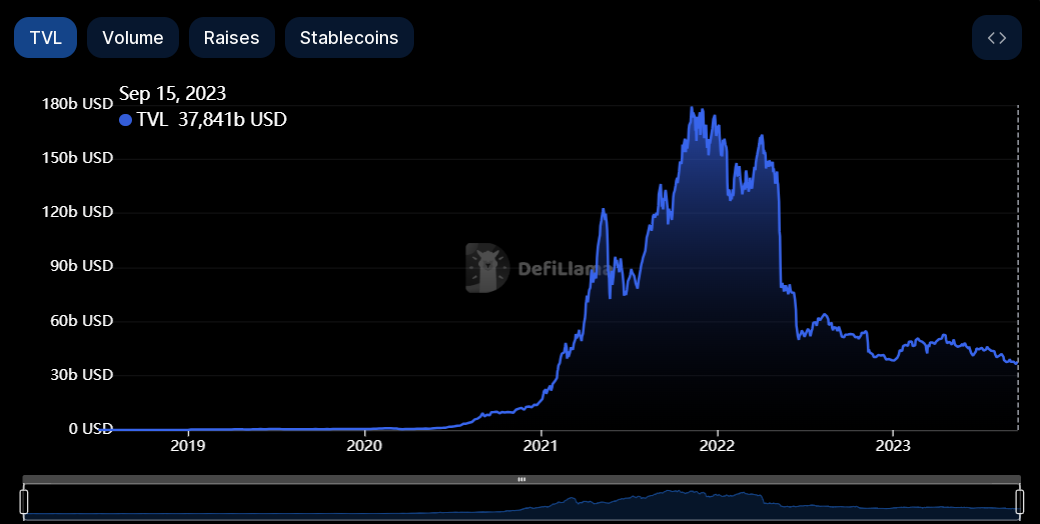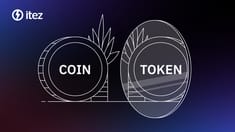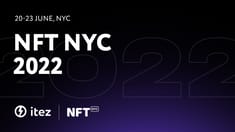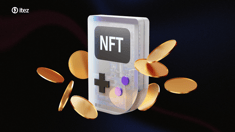In developing countries, 70% of citizens actively use banking services, and this figure is even higher in developed countries. As of the end of 2022, in the US, only 6% of adults did not have a bank account.
The statistics are clear: surviving without banking tools is quite difficult. People use those tools for e-payments, money transfers, applying for loans, and storing savings. However, such services often come with high fees and lack of alternatives as banks have managed to create a monopoly in the traditional financial market.
DeFi solves the banking monopoly issue. Let's learn how it works.
What is DeFi: meaning and history
DeFi, short for decentralised finance, refers to the decentralised finance market and tools, which serves as an alternative to the traditional banking system with its unfair fees and sluggishness.
DeFi is based on the principle of decentralized transactions. It eliminates the need for exchanging personal information and reliance on third parties in order to conduct transactions. Instead, users simply buy or receive cryptocurrency and register a crypto wallet.
Transaction fees in DeFi are determined by demand, which can lead to higher fees during periods of heavy network usage.
Traditional banks typically lack anonymity and require a set of personal documents for identity verification. Banks have access to transaction information and can block transactions at their will or when mandated by the watchdogs. Moreover, with no competitors around, banks are not interested in reducing fees.
Let's summarise: DeFi combats such shortcomings as high fees and complete de-anonymization, which are natural to traditional banking systems.
The birth of DeFi
The inception of DeFi ideas dates back to the creation of Bitcoin (BTC) in 2009. Its creator, an anonymous developer known as Satoshi Nakamoto, offered users a system for anonymous settlements. To conduct a transaction on the Bitcoin network, one does not need to know the recipient’s name or disclose personal data. All they required is the recipient's wallet address to facilitate the transaction, processed by anonymous miners. These are market participants in the crypto network who verify and process transactions for fees.
Miners are scattered all over the world, and anyone can become a miner. The standard pack includes a computer and internet access.
The absence of a single control centre makes such systems decentralized. Therefore, they are protected from censorship and hacking. To censor this kind of a system, one would need to simultaneously gain control over all miners globally, a technically impossible task.
As previously mentioned, fees in decentralised systems are determined by demand, and during peak demand, fees may increase. For instance, the average Bitcoin fee is $1.62. In April 2021, it reached $60. The growth occurred amid the disconnection of a large number of miners from the cryptocurrency network due to a problem with power supply in a large mining centre in the Chinese province of Xinjiang. Thus, the amount of the system participants who can process transactions has decreased. Queues were also the reason for the commission to increase.
The Bitcoin network fees are not low enough to compete with bank transfers (except certain cases), which can also cost up to a couple of dollars. At the same time, the BTC network is inferior to popular payment systems in terms of speed. Visa can perform 24 thousand transactions per second, but Bitcoin’s result is only about 5.
However, there is one more problem. Bitcoin alone is not sufficient to completely replace the traditional banking system, as they lack tools for lending, earning interest, and other essential banking services. The solution to these limitations lies in Ethereum.
The Ethereum role in DeFi evolution
Ethereum is a crypto project launched in 2015. It was created by a group of developers led by crypto enthusiast Vitalik Buterin. The programmer was inspired by Satoshi's idea but decided to technically improve his project using smart contracts technology. Smart contracts are a digital analogue of conventional contracts, which automates operations within an electronic system. Using a smart contract, users can set up payment-carrying on a certain day of each month or even build a decentralised exchange with its own automated rules.
Smart contracts have made Ethereum a convenient platform for creating DeFi projects. This is why many believe ETH helped spread DeFi ideas throughout the crypto space.
Initially, Ethereum operated on the same Proof-of-Work (PoW) algorithm as Bitcoin, which is quite reliable but not suitable for high transaction volumes. Therefore, in the fall of 2022, Ethereum developers switched the project to a faster Proof-of-Stake (PoS) algorithm. Read more about these popular algorithms here.
Interestingly, over time, Ethereum has also faced competitors from such platforms like Tron, Solana, and Avalanche. Developers teased Ethereum users with low fees and higher network speed. Despite all the attempts, the time-tested ETH remains the leader of the DeFi market.
What does the DeFi market look like today
DeFi offers users a full range of financial services that replace traditional banks.
💳 Users can carry out transactions using various cryptocurrencies, including Bitcoin and Ethereum.
💸 Landing platforms like AAVE and JustLend facilitate loans.
💰 Passive income opportunities are available through platforms like Lido and Convex Finance.
As of the time of writing, the total value locked in the DeFi market exceeds $37.5 billion, with its peak recorded in November 2021 at $178.6 billion.

In November 2021, the DeFi market value reached its maximum level amid Bitcoin reaching an all-time high of $69k.
Below is the list of the top 10 largest DeFi projects:
Nine out of the 10 largest DeFi projects operate on Ethereum.
What's wrong with DeFi
Unfortunately, DeFi has several cons. One significant concern is the lack of security guarantees, as DeFi smart contracts can contain errors. Platform hacks pose a high risk to users’ hard-earned funds.
Additionally, cryptocurrency adoption has not yet reached a point where people can fully abandon traditional money and banking tools. Even El Salvador, which made Bitcoin legal tender in 2021, still relies on fiat.
Furthermore, DeFi users may experience difficulties due to the impossibility of crypto transaction cancellations. Once the coins are transferred to a wrong address, they will not be returned.
Should you dive into DeFi?
The decentralised finance market presents alternatives to the majority of traditional banks' tools. Users can access them anonymously around the clock, which is a compelling reason to dive into DeFi.
At the same time, you should choose only time-tested projects due to security concerns. Earlier, we wrote a review with essential tips that will help you consider a proper project for investments and work.
🤔 What’s your opinion about DeFi? Share on socials!
💌 Telegram, Twitter, Instagram, Facebook
You may also like:
What is a spot bitcoin ETF, and why does everyone talk about it?
How to cash out crypto: the ultimate guide
This article is not an investment recommendation. The financial transactions mentioned in the article are not a guide to action. Itez is not responsible for possible risks. The user should independently conduct an analysis on the basis of which it will be possible to draw conclusions and make decisions about making any operations with cryptocurrency.








